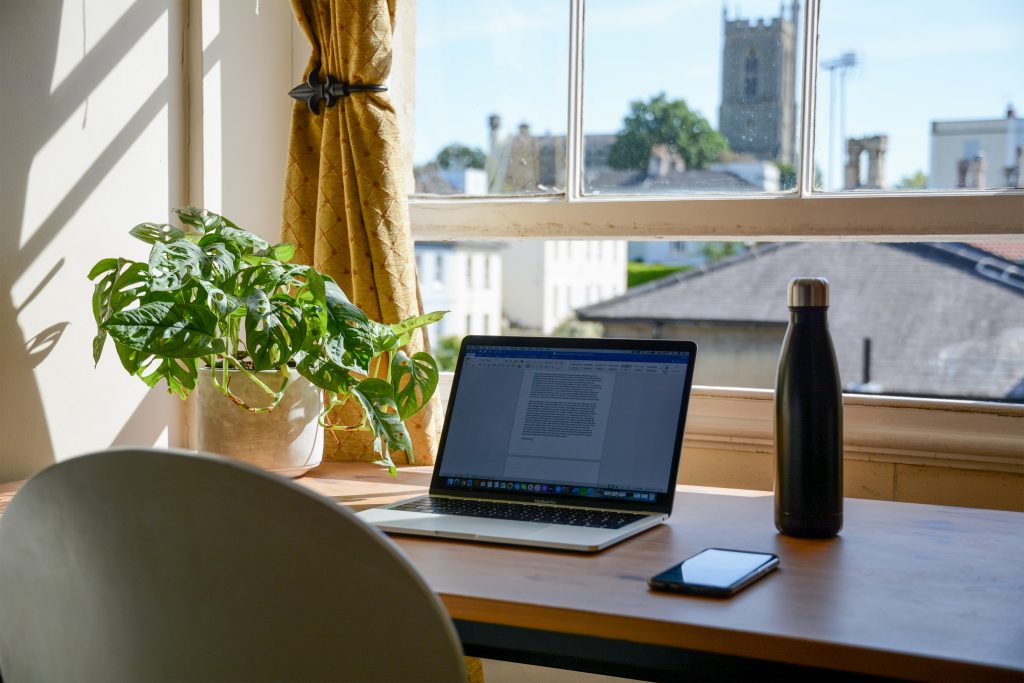
From Work From Home to the Office, Everyone Back to Work, Please!
By Luise Sargent
Communication is key when supporting your team, check in with your staff members but really listen to what they are saying and sometimes to what they aren’t saying!
As we near the end of the summer break more and more of us are heading back to offices up and down the country. Thank goodness for that, some of you may be saying whilst others will be dreading it. So how does an employer deal with the fear and anxiety that could be part and parcel of coming back into a busy office?
My name is Luise Sargent, and I am the founder and CEO of TherapyPoint Ltd, a Psychotherapy practice based in Harley Street. Throughout Covid, I have seen lots of clients struggling to come to terms with losing loved ones, losing motivation and losing their sense of self. All expected in my line of work, you may be saying, however, these clients are your employees, heading back to work in your busy offices, and if you expect them to be as efficient as they once were, you may need to implement some strategies to help them readjust.
I have noticed there are two trains of thought from clients post-covid, the ‘thank goodness it’s all over, let’s get back to normality’ group and the ‘well it could come back anytime so we still need to be cautious’ gang.
These two types of people could be sitting opposite each other in your office very soon. So navigating their differing opinions will need to be handled sensitively and with compassion.
So how do you handle this without disrupting your distribution and workload?

Check-in with everyone initially with an email to gauge how they are feeling about being back. You may then have to have one-to-one meetings/phone calls with anyone you feel may be quite anxious about coming back in to alleviate their fears or at least to understand what their worries are.
We have all noticed a more healthy work/life balance whilst working from home, the commute from bedroom to dining room table has been slightly less stressful than negotiating buses and trains on a cold wet Monday morning, for example. And most of us have managed to put the washing machine on in between zoom meetings! So all of a sudden the jobs we used to do in the evening and weekends have become part of our working day. So once we head back to the office, we could realistically be away from home for an average of 10 hours per day.
This can put pressure on relationships – ‘who does what jobs’ around the house if one of you is working longer hours than the other. And then having to work out who is doing the majority of the household chores once home, feeding children, taking dogs for walks etc.
Now, as an employer, you may think these issues don’t concern you however, we all know if we are feeling cross or frustrated in our private lives, it can be difficult to perform efficiently in the workplace. Long gone are the days when people left their personal lives at home when they clocked into work!
Stress is one of the main reasons for long-term sick leave in the UK, and stress isn’t something you can snap out of in 2 or 3 days, the employee could be off for weeks or even months trying to get some support with what they are dealing with in their personal lives. The knock-on effect is their team members, your employees having to take on the absent person’s workload as well as their own, this can lead to animosity within the team causing more issues for you to navigate. Now I’m painting quite a dark picture of the workplace post-Covid, but by using strategies a lot of these issues can be cancelled out before they need to concern you.

Having a designated person who has had some training in mental health first aid can be a valuable asset to any team, make sure the person you choose to do this job is firstly willing and secondly understanding of the importance of this role.
Confidentiality is key as they could be working very closely with all members of the team. If you are going to offload to someone about how you are feeling you don’t want to see it plastered on the noticeboard for everyone to see or hear someone talking about your marriage problems in the kitchen!
Now the person needs to know that although confidential it may need to be discussed with their line manager to try and alleviate the problem. After all, if you don’t know something is wrong it’s very hard to fix it! However, what if the problem is with the line manager?
Again the mental health first aider will need to have another person to refer to in this instance. Having someone you trust is imperative for this role.
So communication is key when supporting your team, check in with your staff members but really listen to what they are saying and sometimes to what they aren’t saying! Body language at times tells us so much more than words can.
We cannot avoid the big issues that will undoubtedly arise within your workplace as life can take us down lots of paths however, it’s the small things that can derail us without realising it.
Within a meeting, if a staff member is acting differently pull them to one side and check in with them, if they are arriving late for work or having to leave earlier than normal ask them how things are. They might not be willing to tell you, but knowing you are there if they want to talk might be all they need at that time, and lastly try not to judge or presume. Easier said than done, but we cannot compare our own lives with anyone else’s. What we think is ‘normal’ and doable might not be ok for someone else.
Working long hours might work for some of the team, but others that have outside commitments might struggle to cope if this is classed as the norm!
I had a client who was the only member of her team with a child so had to leave on time to collect them from the childminder however everyone else thought it was highly amusing to suggest she was having ‘yet another half day’ No malice was intended from her colleagues but this wore my client down to the extent that she had to take some time off and seek help, this whole situation could have been avoided if she had felt able to speak to someone about how these comments made her feel.
We cannot avoid the big issues that will undoubtedly arise within your workplace as life can take us down lots of paths however, it’s the small things that can derail us without realising it.

So to recap, as an employer with a team heading back to the office firstly;
- Check in with a generic email asking for any concerns they may have.
- Then arrange a meeting/phone call with anyone who has concerns.
- If you haven’t already done so, choose a member of staff who you feel would be a good mental health first aider MHFA and get them to go on a course.
- Arrange a staggered back-to-work plan for anyone struggling with coming back full time and suggest they speak to the MHFA to discuss any further fears.
- Have an open door policy so people can come and talk to you if they feel there is an issue, as I said communication is key and can alleviate a lot of problems before they become issues.
- Remember not to presume that something you or your team find easy or do without fear might cause someone else anxiety, so again, check in with everyone about how they are feeling.
- However, and I feel this is equally important, your team has to be able to work together and if one staff member isn’t able to fully integrate with the other members or be able to be part of the team, this has to be addressed within the appropriate channels.
As discussed earlier, we have had a much better work/life balance due to working from home, and I feel it is really important to try and keep this going as much as possible. At home, work out who does what chores and decide whether the distribution is fair, but always try to discuss this rather than dictating as none of us like to be told what to do!
Being organised can reduce a lot of rows over who is cooking or what are we eating or even if clothes are washed and ready for the next day. We tend to organise our work life much more than our home life, but by using the same tactics at home, life can become slightly more harmonious.
About Luise Sargent

Luise Sargent is the founder of Therapy Point and offer counselling for adults, adolescents and couples in Harley St London W1. She is a degree qualified Counsellor and has been practicing for 8 years, working for a family charity and the NHS. Working on the premise that everyone has the ability to become the best version of themselves, Luise offers her clients a safe non judgmental environment to allow them to grow as an individual and/or couple.
Edited by Sujany Baleswaran





